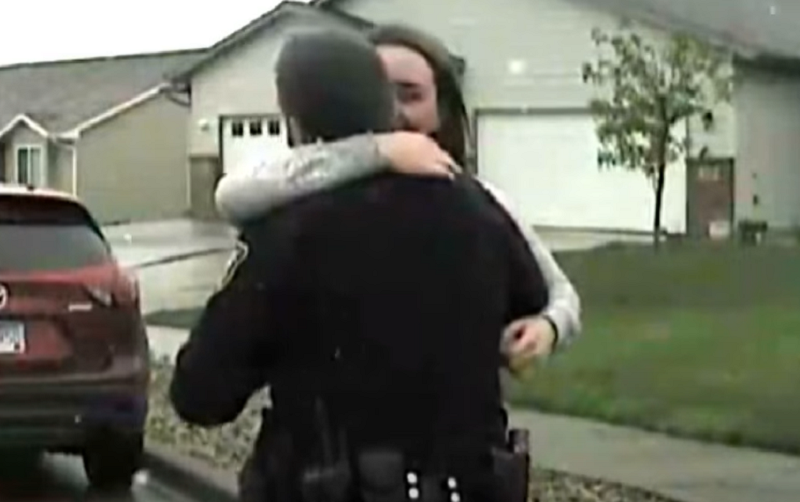
An Atlanta divorce attorney, Katie K. Leonard, communicated in a recent TikTok video that police officers are among the top five professions that women should avoid as marriage partners. Leonard does not rank the top five in order but includes firemen, military men, surgeons, and pilots along with police officers. Leonard only addresses women whose men are among these professions, so the question of other gender mixes remains unexamined.
The challenges of a police marriage are no mystery in the profession, nor are they necessarily unique to law enforcement. The combination of shift work, the physical toll of being on constant alert, the learned behavior of being suspicious and distrustful, and the strong professional bonds that can alienate wives from the officer’s social milieu can be a soul-killing acid that slowly dissolves marriage partnerships.
Leonard described these five categories as gods in their professions, taking a ‘scorched earth’ attitude in divorce litigation, with a tendency to narcissism. Her observations are subjective and based on her perceptions as a divorce lawyer, but her thoughts are a caution for police marriages. Leonard also states that the most vulnerable and frustrated women in divorce cases are stay-at-home moms, for economic and social reasons.
The most common advice in marriage counseling is to develop healthy communication skills. For the police officer, this is a challenge because communication in a family setting is a significant contrast to their typically highly developed professional communication skills.
Communication on duty for police officers typically involves one-way communications. They are receivers of one-way communication in orders, policies, and memos. They give orders and directions on the job with no room or time for feedback or discussion. The officer is the gatherer of facts and interpreter of facts at rapidly evolving events and makes immediate decisions based on their experience and training. Nothing is more frustrating to a police officer than for his directions to be questioned or altered. This is obviously not a model for marital communication.
That is not to say that law officers are not good listeners. They listen for facts, processing all the while, make notes, verify information, alert for inconsistencies and lies. They listen while there is chaos in the background, necessarily distracted by the squawking radio. They know eye contact is important, but they also know they have to keep aware of their environment to stay safe and protect others. They can be genuinely sympathetic, but never give over to emotion. These listening skills are different than those their spouse needs at home.
Any spouse, but especially the police officer, must incorporate different listening skills for their children and marriage partner than they practice on duty. This requires an intentional shift in the brain that many find best accomplished with a private ceremony before walking into the door of their home. For some, it is a symbolic touching of the mailbox or porch rail to ground them to their family and release their work. For some, it is a prayer, a pause, a pledge, or a hand over their badge to make the transition from cop to loved one.
The officer should make their expectations known early in their career and marriage about what those first few moments through the door will look like. Some need a hug, some need to sit in silence for a few moments. Some will want to talk about their day – most probably will not. Listening to the spouse’s day is sometimes a challenge. It is here that the police officer must resist the temptation to compare the injury crash they worked to the banality of the other spouse’s complaints that Betty in Accounting sent an insulting memo or little Bobby broke the toilet paper dispenser.
Making eye contact and physical contact to focus on the spouse’s words will help avoid mental distractions. Hearing the feelings rather than just the facts and accepting them as valid and truthful uses a domestic skill, not a professional one. Whether an officer decides to be completely honest about what happened during the day and how they feel about it will vary from relationship to relationship. Most officers will want to shield their loved ones from the harsh reality of the world they face. Most probably shield themselves by not processing the depth of their emotional exhaustion and trauma, much less pour it out on their family.
Having a strong family is an immeasurable benefit to an officer’s success personally and professionally. It takes as much attention to developing skills at the officer’s house as it does at the station house.